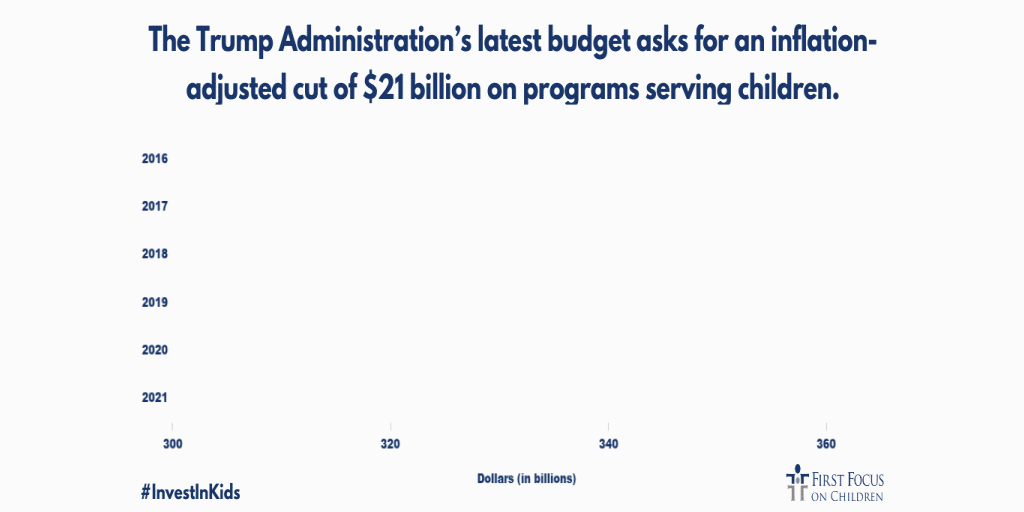Politicians love to talk about kids. Just recently, Senate Majority Leader Mitch McConnell said that any future pandemic funding should focus on “kids, jobs, and health care.”
But talking is not doing. New research from our budget team here at First Focus on Children finds that the share of U.S. federal spending on children has hit its lowest level in five years, even as the global pandemic threatens to reverse economic gains made since the Great Recession.

As the budget process kicks into high gear this week, we need lawmakers to put our money where their mouths are.
Children make up one-quarter of the U.S. population. Yet just 7.48% of all federal spending went toward their well-being in FY2020, according to our most recent federal budget analysis. The numbers represent a 2% decrease in share from FY2019 and a nearly 9% decrease across the last five fiscal years from FY2016 to FY2020. President Trump’s FY2021 budget request would push that share even lower, to just 7.32%.
The First Focus 2019 Children’s Budget revealed that the United States — for the first time — spent a greater share of the federal budget servicing the national debt than supporting the children who will inherit it. That trend continued in our FY2020 analysis and will likely deepen as the pandemic continues to batter the economy.
The Trump Administration’s FY2021 budget request would reduce the share of federal spending on children by another 2.1% to just 7.32%. The reduction represents an inflation-adjusted cut of $21 billion on programs serving children in FY2021. The president also seeks to eliminate or financially suffocate 55 current programs that aid low-income students, subsidize heating costs for low-income kids, and otherwise support children’s health, education and well-being. The president also proposes cutting Medicaid, the Children’s Health Insurance Program, and other essential children’s health care by $1 trillion, money that would go toward tax cuts for the wealthy.
COVID-19 and its economic fallout have increased child hunger and homelessness, interrupted the education of millions of K-12 students who lack internet access at home, and claimed millions of jobs. Experts predict that widespread unemployment could spike child poverty by as much as 53%.
Congress must use the upcoming budget process to reverse these trends. Only by putting children first can lawmakers hope to blunt the pandemic’s impact on the future.
First Focus on Children will release its comprehensive analysis of the federal budget and the more than 200 programs aimed at children this fall.
